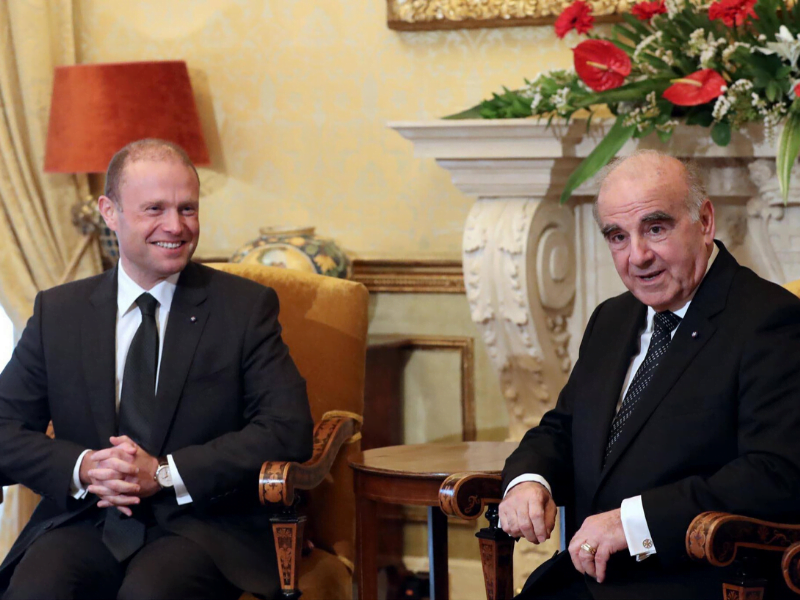President George Vella is refusing to publish the contents of former prime minister Joseph Muscat’s resignation letter arguing that “the public interest that is served by non-disclosure outweighs the public interest in disclosure.”
Through a Freedom of Information (FOI) request, the Office of the President was asked to make available a copy of Muscat’s resignation letter from the Office of the Prime Minister last January.
President George Vella turned down the request twice, quoting exemptions provided by the FOI Act.
Asked to indicate which provision of the law his office was quoting to deny the publication of the former Prime Minister’s resignation letter – something that is in the public interest – Vella’s office quoted a rarely used exemption that states that the release of this letter would “have a substantial adverse effect on the proper and efficient conduct of the operations of a public authority,” which in this case refers to the government.
It is not yet known why Muscat’s letter would have such an adverse impact on the government’s functionality.
A separate, identical FOI request to the Office of the Prime Minister, now headed by Robert Abela was also turned down: “The OPM is not in the possession of the requested document in its general records.”
Government sources told The Shift that the contents of Muscat’s letter might contain references to his former Cabinet colleagues and his view on how they manoeuvred behind his back to force his resignation. This, or any other reason outlined by Muscat, could not be confirmed due to the rejection of the FOI request.
Muscat announced his resignation on 1 December 2019. He did not step down immediately, as demanded by civil society. Instead, he held office for another month and a half to provide “a smooth transition” in which Abela, his trusted advisor, took his place.
Muscat’s decision to step down followed reported internal pressure and massive street protests, which intensified particularly when his most trusted aide, Keith Schembri, was outed in connection with the plot to assassinate journalist Daphne Caruana Galizia.
Muscat’s December announcement also arrived after long and stormy Cabinet meetings in which many of Muscat’s ministers asked him to step down as his time was up. It was also the time journalists were locked in at Castille.
Yorgen Fenech, accused of being the mastermind behind the assassination of Caruana Galizia had publicly indicated the Prime Minister’s Chief of Staff in connection with the murder.
Fenech also told the police that Schembri was involved in another plot, to try to shift the blame of the assassination onto then Labour’s Deputy Leader and Economy Minister Chris Cardona. It had also resulted that Schembri was also involved in obstructing justice through messages passed on to Fenech through a doctor while in custody.
Despite these serious claims against Muscat’s closest aide and personal friend, the police have not yet arraigned Schembri. Meanwhile, a prosecutor at the Attorney General’s Office that is mounting the case against Fenech, switched to the accused’s defence team overnight.
During the turbulent days leading to Muscat’s resignation, it emerged that he had accepted expensive personal gifts from Fenech including a rare Bvlgari watch with an estimated value between €12,000 and €17,000.
The former prime minister was also given three bottles of Pétrus, a Bordeaux red wine worth thousands, by Fenech. Connoisseurs who spoke to The Shift estimated the value of the three bottles given to Muscat at some €5,000.












